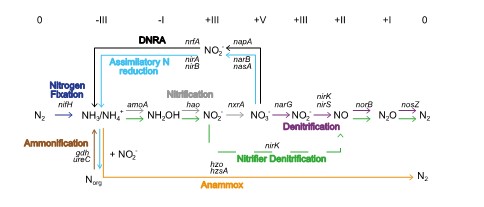16.5.2023: Stefanie Maier (Graz): Microbial nitrogen transformation in soil causing atmospheric nitrous acid (HONO) and nitric oxide (NO) emissions, HS 32.01, Institut für Biologie, Bereich Pflanzenwissenschaften, Holteigasse 6, 17.00 bis 18.30 Uhr
Soils host one of the most diverse microbiomes on Earth with abundances of prokaryotes (bacteria and archaea) reaching 4 – 20 × 109 cm−3. Microorganisms are one of the major biotic drivers of the biogeochemical cycles of carbon, nitrogen (N), oxygen, and sulfur. Nitrogen represents an essential element for all living organisms and the availability of reactive forms of N for growth (ammonium and nitrate) relies on metabolically versatile microorganisms carrying out N-transforming reactions.
During the N-cycle, N-containing pollutants and reactive gases are released into the environment, amplified by anthropogenic activities such as soil fertilization in agriculture. Soils are a source of the atmospherically relevant trace gases nitrous acid (HONO) and nitric oxide (NO). Nitrogen oxides (NOx = NO + NO2) play a vital role in the formation of tropospheric ozone (O3), a component of photochemical smog and a short-lived climate pollutant. Nitrous acid (HONO), as precursors of the hydroxyl radical (OH•), regulates the oxidation capacity of the atmosphere, which leads to the removal of most trace gases emitted by natural and anthropogenic activities.
We combined molecular methods (high throughput sequencing of 16S rRNA genes, qPCR, CARD-FISH) with microsensor measurements of oxygen conditions and measurements of HONO/NO emissions under controlled laboratory conditions using a dynamic chamber system to study the biogenic origin of the emission of the reactive gases HONO and NO from soils.
